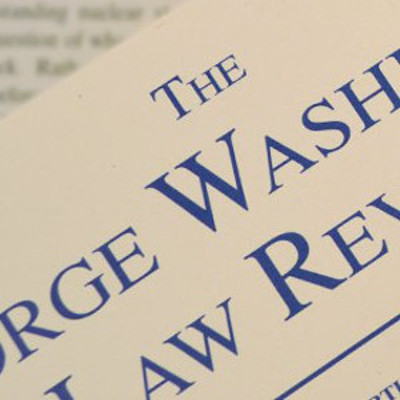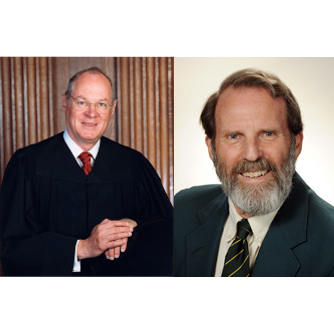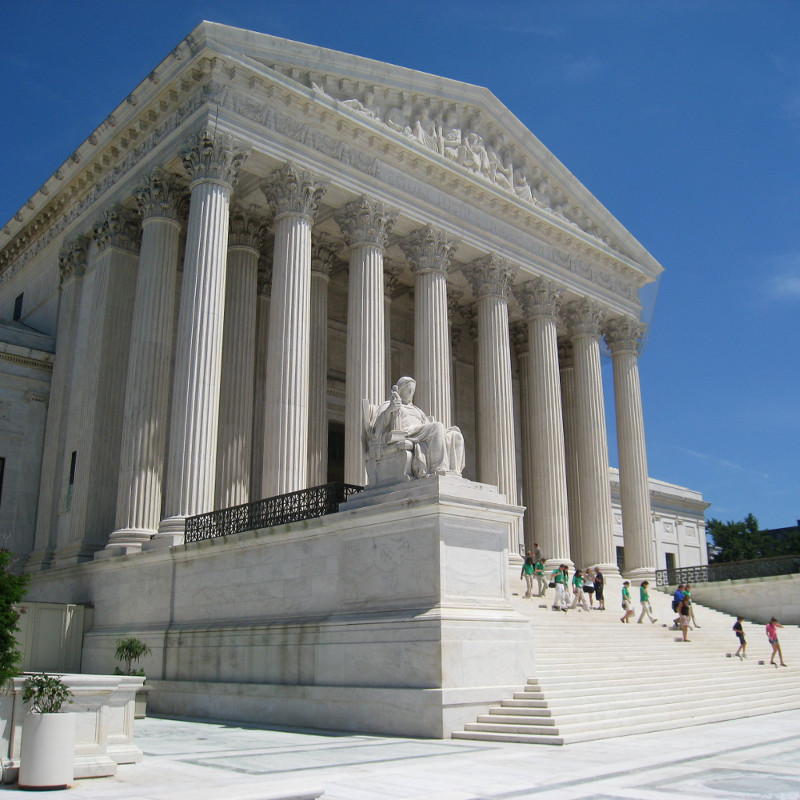China’s Variable Interest Entity Problem: How Americans Have Illegally Invested Billions in China and How to Fix It
Samuel Farrell Ziegler 84 Geo. Wash. L. Rev. 539 U.S. investors have invested over $70 billion in Chinese companies. Many of those investments—by some estimates most—are illegal under Chinese law. Some of China’s largest companies, including nearly half of the Chinese companies listed on U.S. stock exchanges, are participants in this scheme to facilitate illegal... Read More
A Judicial Solution to the Medicaid Gap: Using Section 1983 to Do What the Federal Government Cannot
Dylan Scot Young 84 Geo. Wash. L. Rev. 511 The effect of the decision in National Federation of Independent Business v. Sebelius (“NFIB”), can be felt most directly in the eighteen states that refused to expand their Medicaid programs under the Patient Protection and Affordable Care Act. The pertinent legal ramifications of NFIB can be... Read More
Tailored Treatment, Tailored Enforcement: Protecting Innovation in Personalized Medicine from a Patent-Protection Loophole
James R. Whittle 84 Geo. Wash. L. Rev. 480 A once obscure patent law doctrine, “divided infringement,” threatens the future of innovation in life-saving medical treatments. This anomaly, shaped by software patent cases but applicable to enforcement of any method patent, provides a patent-protection loophole for certain infringers. Divided infringement has generated much discussion and... Read More
Fixing Bail
Samuel R. Wiseman 84 Geo. Wash. L. Rev. 417 A large portion of the jail population consists of criminal defendants whose guilt has yet to be established. A growing number of states have attempted to reduce jail populations in light of budget concerns, and many federal and state statutes already direct judges to detain defendants... Read More
Drones and the Future of Aerial Surveillance
Gregory S. McNeal 84 Geo. Wash. L. Rev. 354 For the first time in American history a regulatory regime is about to allow for small aircraft without onboard pilots—drones—to fly in the national airspace. Legal and technological developments have thus made it all but certain that drones will be a catalyst for new ways of... Read More
Redefining What’s “Reasonable”: The Protections for Policing
Barry Friedman and Cynthia Benin Stein 84 Geo. Wash. L. Rev. 281 How should the Constitution govern police surveillance and investigations? Once, the formal rules were clear, even if not faithfully observed: searches and seizures required probable cause and a warrant. Today, how- ever, the Supreme Court has said that many forms of police activity... Read More
Tyson Foods, Inc. v. Bouaphakeo: Class Actions Escape Knock Out Punch from Tyson
Tyson Foods, Inc. v. Bouaphakeo, 577 U.S. ___ (2015) (Kennedy, J.). Response by Dean Alan Morrison Geo. Wash. L. Rev. Docket (Oct. Term 2015) Slip Opinion | New York Times | SCOTUSblog Class Actions Escape Knock Out Punch from TysonFor the second time this term, the high hopes of the class action defense bar for... Read More
On the Docket’s Preview of March Supreme Court Arguments
Common legal wisdom holds that the Supreme Court is more than the sum of its parts, and the addition or removal of a Justice transforms the Court as a whole. The adage has undoubtedly proven true in the weeks since Antonin Scalia’s passing, and as we enter into the Court’s second sitting with only eight... Read More
Section 280E of the Internal Revenue Code and Medical Marijuana Dispensaries: An Interpretation Based on Statutory Purpose
Nikola Vujcic 84 Geo. Wash. L. Rev. 249 Congress enacted section 280E of the Internal Revenue Code to prohibit taxpayers engaged in the sale of illegal drugs from taking deductions on their income. Section 280E was passed after the Tax Court upheld deductions taken by a self-employed marijuana and narcotics dealer. Today, section 280E still persists in the Code... Read More
Wellness at Work: Reconciling the Affordable Care Act with the Americans with Disabilities Act
Michelle R. Seares 84 Geo. Wash. L. Rev. 218 In an effort to encourage employers to institute employee wellness programs, the Patient Protection and Affordable Care Act (“ACA”) increases the permissible financial incentives employers may offer their employees in exchange for participation in such programs. The Americans with Disabilities Act (“ADA”), however, prohibits employers from subjecting employees to disability-related medical... Read More



